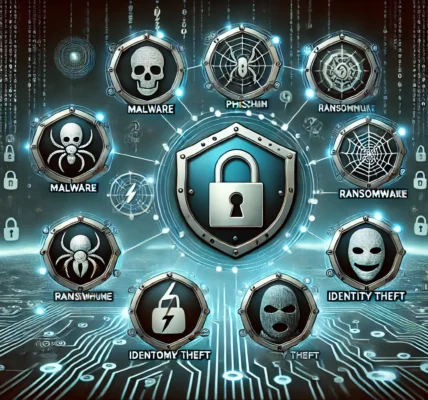Introduction
Cell phones are indispensable in our daily lives, serving as communication devices, personal assistants, and gateways to the digital world. However, their widespread use also makes them vulnerable to a range of cyber threats, including malware, phishing attacks, and unauthorized access. Securing your cell phone is essential to protecting your personal information and maintaining your privacy. This article discusses the most common security risks for cell phones and provides actionable solutions to safeguard your device.
Common Security Risks for Cell Phones
Malware Infections: Downloading apps from untrusted sources or clicking on malicious links can lead to malware infections, compromising your device’s security.
Phishing Attacks: Phishing attacks involve tricking users into revealing sensitive information through fraudulent messages or websites that appear legitimate.
Unsecured Wi-Fi Networks: Connecting to public Wi-Fi networks can expose your cell phone to cyber threats, as these networks are often insecure and vulnerable to hacking.
Weak Passwords and Authentication: Using weak passwords or failing to enable multi-factor authentication (MFA) can make it easier for cybercriminals to access your device and personal information.
Insecure App Permissions: Many apps request access to personal information that they don’t necessarily need, leading to potential privacy violations if the app is compromised.Solutions to Secure Your Cell Phone
Install a Reputable Antivirus App: Protect your cell phone by installing an antivirus app that can detect and remove malware, spyware, and other threats.
Be Cautious with Links and Attachments: Avoid clicking on links or downloading attachments from unknown sources, especially in SMS or email messages.
Use Strong Passwords and Enable MFA: Create complex passwords that include a mix of letters, numbers, and symbols, and enable MFA for an additional layer of security.
Regularly Update Your Software: Keep your operating system and apps up to date to protect against vulnerabilities that hackers could exploit.
Avoid Public Wi-Fi or Use a VPN: If you must use public Wi-Fi, ensure your connection is secure by using a virtual private network (VPN) to encrypt your data.Conclusion
Securing your cell phone is crucial to protecting your personal information and maintaining your privacy. By understanding the risks and implementing these security measures, you can significantly reduce the chances of your device being compromised. Stay proactive in safeguarding your cell phone and the sensitive information it contains.
Signed: RP Smith
Pingpalz.com

